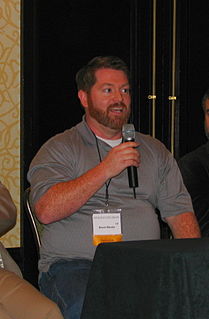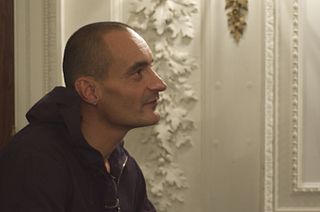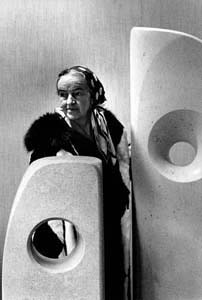A Quote by Junot Diaz
Long before the idea of multiculturalism, in public people could say almost anything to you and get away with it.
Related Quotes
In the US, commercial interests stole the airwaves early on, before public broadcasters could get a stab at it. And the deal that was made with public broadcasting was, "Okay, we'll allow there to be a handful of public stations to do the educational programming that commercial broadcasters don't want to do, but the deal is they can't do anything that can generate an audience, anything that's commercially viable." Anything they do that could be commercially viable could be considered unfair competition to commercial interests and should only be on the commercial stations.
There was a period when the utopian scenario was almost true - when we felt that you could do almost anything in a club, as long as it was any good. There was no rigid expectation from the audience as to how it had to be delivered. But this didn't last very long. It was almost palpable, the decline of this in the new millennium.
['Fire and Rain'] is sort of almost uncomfortably close. Almost confessional. The reason I could write a song like that at that point, and probably couldn't now, is that I didn't have any sense that anyone would hear it. I started writing the song while I was in London...and I was totally unknown.... So I assumed that they would never be heard. I could just write or say anything I wanted. Now I'm very aware, and I have to deal with my stage fright and my anxiety about people examining or judging it. The idea that people will pass judgment on it is not a useful thought.
I went public with the alcoholism, very early on... the early '70s. Mercedes McCambridge, the actress, I think was the first recognizable person that went before Congress and talked about it, and I thought that was a good idea, to take some of the stigma away from it and say "Normal, average people can fall prey to it." So it's been public for me. I did a movie about an alcoholic. And today, you're nobody unless you've been to rehab. It seems like everybody has some kind of an addiction.
When you are converted, you want to do what you didn't want to do before, and you don't want to do what you wanted to do before. There's a change in the heart; there's a cleaning up, a change in orientation, and holiness becomes attractive, instead of something you have to put up with to figure out what you can get away with. As long as young people are asking, 'Can I get away with this?' or 'Can I get away with that?' I wonder if they're regenerate. If they're asking, instead, 'How can I grow in holiness?' then I suspect they've begun to understand.
Sometimes I wish it were a simpler world. I love and hate people. When I say I hate people, I really truly mean it. Sometimes I think everyone should be dead, that the animals would be better off without people. But sometimes I go into the square and I look at all the people passing me by and it fulfills me -as long as they don't bother me. As long as they just walk past and don't ask me for anything, it's fine. I almost wish I could think about it in a mundane way.
Before I start carving the idea must be almost complete. I say 'almost' because the really important thing seems to be the sculptor's ability to let his intuition guide him over the gap between conception and realization without compromising the integrity of the original idea; the point being that the material has vitality - it resists and makes demands.
I think I've had a long, distinguished career in public service. It just goes to show you what some politicians will do. They'll say or do anything to get elected. I know all these people. They all claimed to be friends of mine up until their mayoral campaigns. They'd call me on the phone and ask for information or come over here and sit in this chair to get briefed.
I could hear her babbling away beside me, but I wasn't really paying attention. I could barely focus on anything. My nerve endings seemed to have come alive; they almost jangled with anticipation I was going to see Will. Whatever else, I had that. I could almost feel the miles between us shrinking, as if we were at two ends of some invisible elastic thread.






































